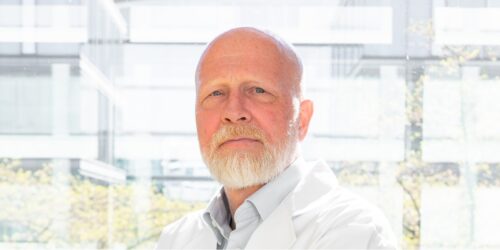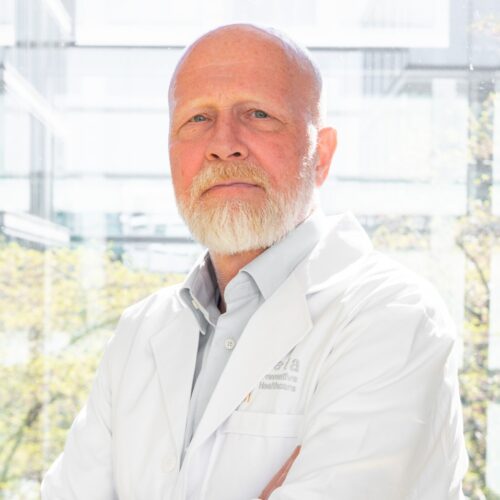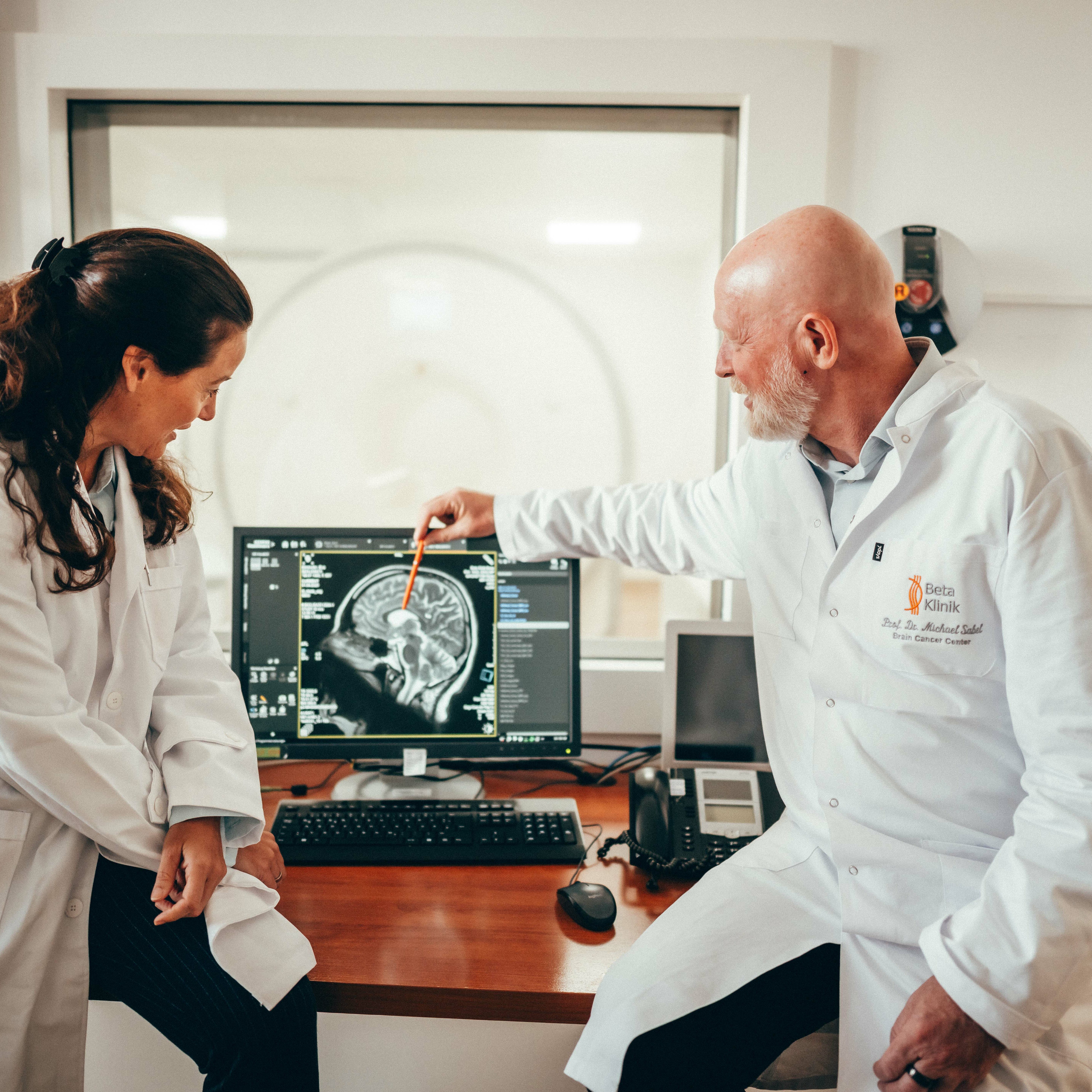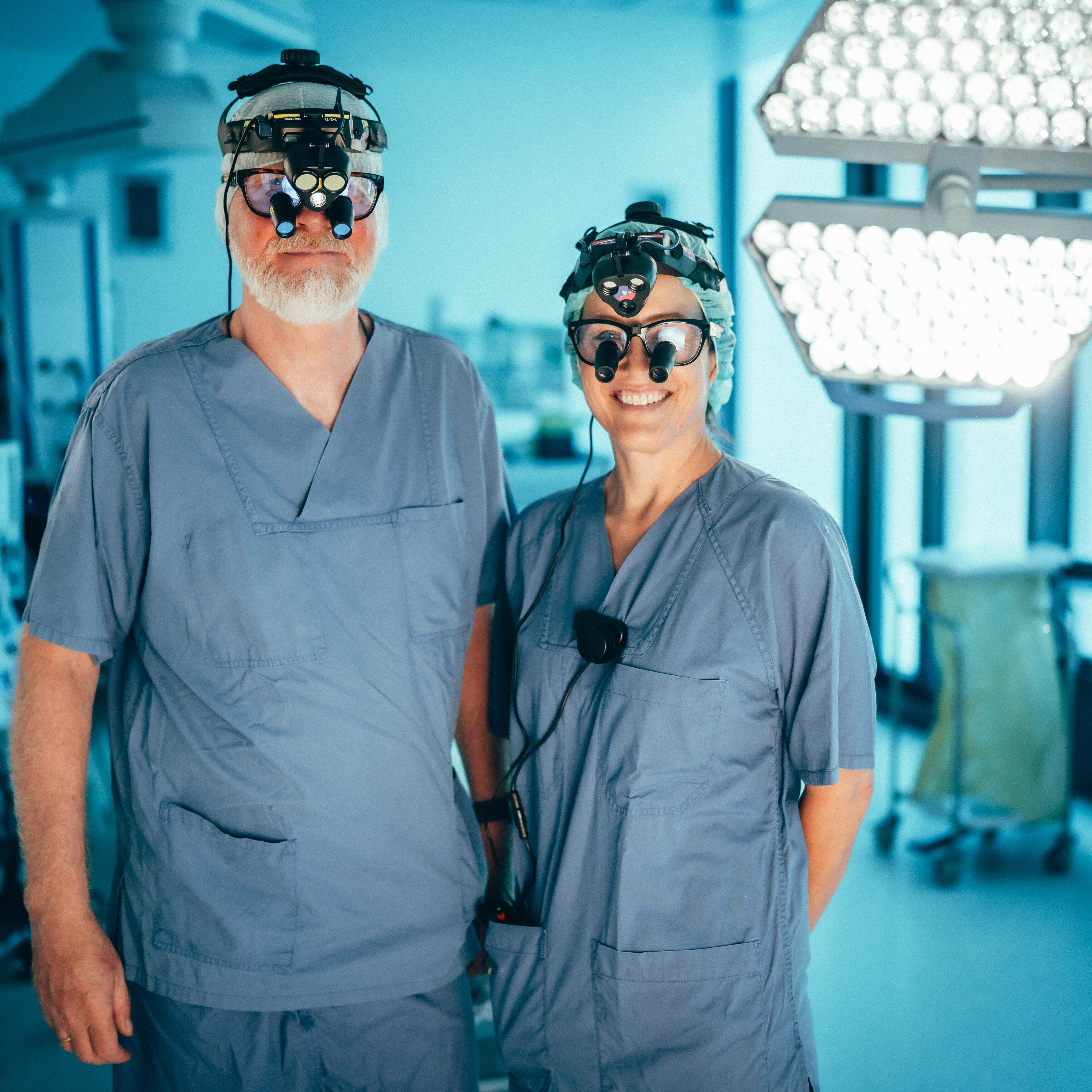When a brain tumor returns, the highest expertise is required. At Beta Klinik, we rely on state-of-the-art, individually tailored therapy concepts to preserve quality of life and create new perspectives even with difficult tumor recurrences – with intelligent diagnostics, innovative immunotherapy, and personal accompaniment.
The term tumor recurrence – in German often simply called Rezidiv – denotes the reappearance of a tumor after initially successful therapy. Colloquially, one speaks of a relapse. Concretely, this means: After operation, radiation, and/or chemotherapy, the brain tumor was initially reduced or no longer detectable, but after some time, tumor growth is again visible on the MRI at the same location or in the vicinity. In the medical classification (ICD-10), there is no separate code just for “tumor recurrence”; the recurrence is considered a continuation of the original tumor disease. Tumor recurrence means that remaining tumor cells have multiplied again – despite all treatments.
Especially with glioblastoma – the most common malignant brain tumor – a recurrence is almost inevitable: Glioblastomas cannot be permanently completely removed, and even after intensive initial treatment, patients unfortunately have to expect relapses. Statistically, up to 90% of glioblastoma patients suffer a glioblastoma recurrence within two years after the first diagnosis. Often the first glioblastoma recurrence occurs even after just six to nine months. A recurrent glioblastoma usually grows faster and is more difficult to treat than the initial tumor, as it often does not respond or responds poorly to conventional therapies.
Many affected individuals wonder what the prognosis looks like for a brain tumor recurrence – particularly, what life expectancy exists with a glioblastoma recurrence. Unfortunately, the average survival time after the occurrence of a glioblastoma recurrence is limited: in studies, it often lies at only about six to nine months if no effective further therapy is possible. These numbers are averages – individual affected persons can live shorter or also significantly longer.
Important: Every patient is individual. With targeted treatment, life time can often be prolonged and quality of life improved. Our experience shows that there are indeed patients who live a longer time with good quality of life despite a glioblastoma recurrence. This almost always requires innovative and sometimes intensive therapy approaches. We do everything to achieve the best possible outcome for you.
The diagnosis of a tumor recurrence is often a turning point – medically and emotionally. All the more important is precise, targeted diagnostics, on the basis of which an individually suitable therapy can be developed. In the Neuro-Oncological Neurosurgery department at Beta Klinik, we therefore rely on state-of-the-art procedures that go far beyond standard examinations. The goal is to analyze the tumor tissue in its biological structure exactly and to precisely tailor the operative and therapeutic planning to it.
We combine imaging procedures with molecular diagnostics and minimally invasive interventions – individually tailored to your medical history and current situation.
Our diagnostic focuses for tumor recurrences:
The treatment of a tumor recurrence in brain tumor (e.g., a glioblastoma recurrence) requires an individually coordinated approach. Unlike the initial illness, there is no fixed standard plan for recurrence therapy. Rather, our specialized team carefully checks which measures are sensible and possible in your specific situation. Here, our team places great value on checking whether further therapy can be carried out within the framework of a study. Study participations are important! Unfortunately, there are few therapies that are often not available to patients. If this also applies to you, we discuss together the following therapy options for the recurrence of a brain tumor:
Neurosurgical Operation for Tumor Recurrences
If the tumor recurrence is in an operable location and your general condition allows it, a repeat operation of the recurrence is often the best step. Through surgical removal of the tumor mass, symptoms can be alleviated and the tumor burden reduced. Numerous studies also show that a second operation can prolong survival time if the recurrence could be operated on in a function-preserving manner. Our neurosurgeons use state-of-the-art techniques (e.g., microsurgery, awake surgeries) to remove the recurrence as completely and gently as possible.
Radiation / Re-Irradiation
If the maximum radiation dose was not completely exhausted or the relapse is outside the previously irradiated region, re-irradiation can be considered. With the help of precise radiation therapy, a recurrent brain tumor can often be targeted again. Innovative approaches can also be used in selected individuals. Re-irradiation can delay tumor growth and improve symptoms, but must be weighed very carefully individually to spare healthy tissue. Our Neuro-Oncological Neurosurgery department works with leading radiation therapy centers.
Chemotherapy and Medicinal Therapy of Tumor Recurrences
Depending on the tumor type and previous therapy, there are possibilities for an adjusted second-line chemotherapy. Targeted medications or antibodies (targeted therapies) are also used in certain cases – for example, those that slow tumor growth and alleviate intracranial pressure symptoms. Which medicinal recurrence therapy is sensible depends on the molecular properties of the tumor and your general condition – we check this individually in each case.
Immunotherapy and Vaccines (Vaccines) for Recurrent Brain Tumors
New immuno-oncological therapies are currently being intensively researched to better fight glioblastoma recurrence. These include, e.g., checkpoint inhibitors (immunotherapy medications) or personalized tumor vaccines (vaccines made from tumor cell material to activate the immune system against the cancer). These approaches are still experimental but show initial successes in studies. At Beta Klinik, we check whether you qualify for such immunotherapies and study participations to open up innovative treatment possibilities for you.
In addition to direct tumor fighting, we place great value on accompanying therapies to preserve your quality of life. These include effective pain therapy, medications for reducing swelling, physiotherapy, occupational therapy, speech therapy, and neurocognitive training. Psychooncological care and coaching help you and your relatives deal with the emotional burden and life-changing circumstances of a recurrence. We also advise you on nutritional questions and complementary measures so that you are strengthened as best as possible.
No recurrence is like another. At Beta Klinik Bonn, we have specialized in treating brain tumor patients with recurrences and particularly complex disease courses. Prof. Dr. med. Michael Sabel and Prof. Dr. med. Marion Rapp are among the most renowned neurosurgeons in the field of neuro-oncology in Germany. In their careers, they have already performed over 3,500 brain tumor operations – including more than 1,000 awake brain surgeries. Thanks to this outstanding expertise, they can not only safely operate on recurrent glioblastomas and other difficult cases but also treat them holistically.
Your Advantages at Beta Klinik
We offer you a unique concept that unites high-tech medicine and human care:
In short: We fight by your side. Our goal is to find the best possible individual treatment for your tumor recurrence and to accompany you empathetically every step of the way.
No recurrence is like another. At Beta Klinik Bonn, we have specialized in treating brain tumor patients with recurrences and particularly complex disease courses. Prof. Dr. med. Michael Sabel and Prof. Dr. med. Marion Rapp are among the most renowned neurosurgeons in the field of neuro-oncology in Germany. In their careers, they have already performed over 3,500 brain tumor operations – including more than 1,000 awake brain surgeries. Thanks to this outstanding expertise, they can safely operate on and treat recurrent glioblastomas and other difficult cases.







